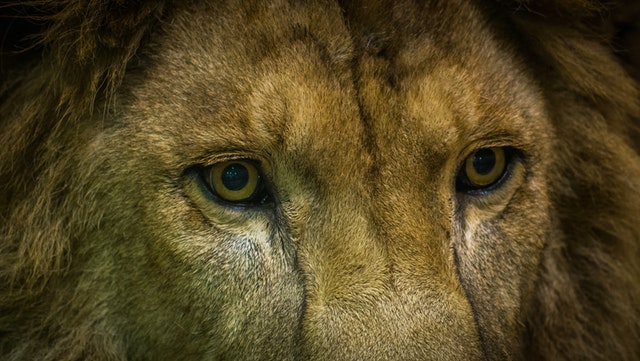
by admin | Feb 12, 2020 | Behind the Bucking Chutes
By Scott Hilgendorff / Cowboys

There’s strength in knowing when to ask for help
of the Cross
Part 1 of 2
Struggles come and there’s nothing weak about knowing when you need to ask for help and getting it. Whether a ranch cowboy, rodeo cowboy or
bull rider, God made you to be tough but he didn’t make you stupid either; a cowboy needs to do things for himself but he also needs to know when it’s time to ask for help.
Our culture, the liberal one that dominates the messages we see from all directions, tells men to be weak, passive, in touch with their emotions and how ‘toxic’ we are because of the traditional ways we define ourselves. The rodeo and bull riding industry and the ranching and farming industries require men to be tough. Taking care of cattle isn’t for the feint of heart. Getting on the back of a bull or jumping off a horse to grab a steer take physical and mental strength. The image of a cowboy, no matter what form, is not of someone who is emotional
But there is real strength in getting help when you need it. You can continue fighting to get that serpentine belt back on your truck until there’s no skin on your knuckles or you can ask your buddy to drop by and help. And there is absolutely nothing weak about seeking professional help when the stress of bankruptcy and a fight with your wife has you feeling worthless and ready to walk away from everything.
Suicide is not the answer. It’s a quick solution for you and a lifetime of heartache for the ones left behind.
We need to grasp what it really means to be meek. Our culture suggests the word means being weak and walking away from taking a stand and while Jesus tells us to always forgive and turn the other cheek, he tells us in Matthew 5:5 Blessed are the meek, for they will inherit the earth.
We’re asked to be meek but absolutely do not mistake that for weakness. Jesus was God on Earth with the power to do anything include destroy those who would attack or undermine his ministry. Meekness is often defined as strength under control. That is real strength—being able to control yourself when you have the ability to use your strength and skills in a unChrist-like way.
Later, in Matthew 11:29, Jesus tells us: Take my yoke upon you and learn from me, for I am gentle and humble in heart, and you will find rest for your souls.
He doesn’t want us to be burdened. He wants us to let him carry our burdens and find peace in our relationship with him.
Jesus is supposed to be enough but sometimes the devil’s whisper in your ear gets so loud, you can’t hear the Savior calling to you. God’s word in scripture is supposed to be where we find hope, but sometimes we can understand the words but not bring them to bear fruit in what we’re going through.
God is sovereign. He gave us the system of government we have and while some of us were wired to be cowboys, he grew up other men and women to be health care providers for both our physical and mental health.
Knowing when to ask for help isn’t weak: it’s strength under control.
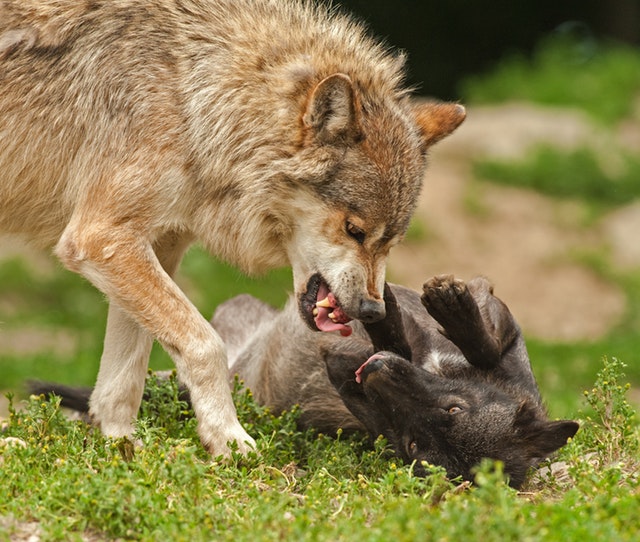
by admin | Nov 21, 2019 | Behind the Bucking Chutes

The Battle Against Sin Part 3
By Josh McCarthy / Cowboys of the Cross
Last time around, I said verse 4 in Ephesians 2 gives us the answer as to why we should fight sin: “But because of His great love for us, God, who is rich in mercy, made us alive with Christ, even when we were dead in our trespasses. It is by grace you have been saved!”
I’m going to focus here on the part “because of His great love for us,” or God loving us by saving us from our sins (which is to say, God saving us from the World, the Flesh, and the Devil). Author and teacher, Matt Chandler, when he preached on 2 Corinthians 5:14-17, made the point that “the love of Christ compels us,” so God’s love for us should be the Christian’s primary motivation for obedience (i.e. fighting sin). This is the same love we see in Romans 5:6-8: “You see, at just the right time, when we were still powerless, Christ died for the ungodly. Very rarely will anyone die for a righteous person, though for a good person someone might possibly dare to die. But God demonstrates his own love for us in this: While we were still sinners, Christ died for us.”
God loved us so much that even when we were sinners, (i.e. traitors, haters of God), Christ died for us. If God loved us that much, shouldn’t we love Him in return?.
Think about the people you love or care about: your spouse, family members, the crew you work with, or your traveling partners. How do you treat them? Do you purposefully hurt them or disrespect them? Do you ignore them when they ask you to do something? If we are called to love God over everything else, do we treat Him like these others (when we should treat Him better than anyone else)? Or does the way we live our daily lives show that we don’t really love God and therefore don’t fight sin – we just act like my heeler when he gets disciplined, rolling onto our backs and letting sin run all over us? If you hear someone say they really love getting on broncs but you’ve never seen them on one and don’t even know if they own a saddle, you’d question the truthfulness of that statement. Well, if we say we love God but never attempt to show it or fight the sin we know He hates, it makes those words pretty hollow. John 14:15 gets straight to the point: “If you love Me, you will keep My commandments.”
Before becoming a Christian, I saw things like the Ten Commandments or commands in the New Testament as expectations I could never live up to. After God saved me, I now see these commands as ways God loves me – like a father instructing his son on how to handle life or the cow boss helping out the new hire on the ranch. Those commands are for our good.
In that sermon I mentioned above, Chandler says that we don’t always love God the way we should. Sometimes we struggle or doubt in those seasons of life. That’s when secondary motivations come in. Two that I think are important are knowing the cost of sin and noticing our drift toward sin.
The cost of sin
As Christians, we know the punishment for sin is the death of the sinner. We know that punishment should be against us, for our rebellion against God – but praise Him for the grace He extends on His people! In the Old Testament, God used the death of animals to atone for sin in the sacrificial system as a foreshadowing of Christ’s death.
Imagine for a moment having to watch something die because of the sin you committed. I don’t know about you, but for me one of the most nerve-wracking things about calving time is if you have to tube a fresh calf to give it milk to keep it alive. Even with plenty of experience there’s always the chance that if you screw up, that calf will have to pay for your mistake by drowning in the milk you’re trying to give it . In ranching or rodeo, we know death is a part of life. When you have a sick cow or an old horse that’s been your work partner for years but won’t survive the winter, sometimes the best option is a bullet. It’s a tough but necessary part of the job. Most of the world doesn’t see that side of ranching. Instead, they just see some nice clean packaged steaks by the time their meat arrives in the store.
Just like the people in the store, I think most of us miss what sin actually costs. This cost wasn’t just any death though. It was bloody and gruesome. Just go look at the sacrificial system in the Old Testament or the crucifixion of Christ in the New.
1 Peter 1:18-19 tells us: “For you know that it was not with perishable things such as silver or gold that you were redeemed from the empty way of life you inherited from your forefathers, but with the precious blood of Christ, a lamb without blemish or spot.”
I think we cheapen the price God paid for us in our salvation. We need to remember, especially in moments of temptation, to think of how bloody and awful it must have been for Christ on the day of His crucifixion. Remember how much pain He endured to save us when it was pain we deserved. That should make us think twice when we are ready to roll over to sin’s demands.
Our natural drift toward sin
If you’ve dealt with cattle in steep country, you know that if left on their own for very long they will eventually drift down to the flattest spot or along a waterway. Much like cattle, if God would leave us alone we would just drift down further and further. Cows don’t just appear at the bottom of the draw and we don’t just “happen” to go deeper and deeper into sin. We make decisions that don’t seem that bad at first but will eventually trap us in our old sinful way of life. If we don’t fight our sin it will just keep growing, kind of like my horse’s feet. If I don’t trim them up or put shoes on him, they’re just going to get worse and worse. As John Owen put it, “be killing sin or it will be killing you.”
While as Christians, we have a new heart and a new nature, our old nature and old habits are still with us.
In Romans 7:21-25 Paul is talks about his flesh or the sin that is in him and how it wages war against his new nature in Christ. “So this is the principle I have discovered: When I want to do good, evil is right there with me. For in my inner being I delight in God’s law. But I see another law at work in my body, warring against the law of my mind and holding me captive to the law of sin that dwells within me. What a wretched man I am! Who will rescue me from this body of death? Thanks be to God, through Jesus Christ our Lord!”
Praise God we have been rescued, and don’t have to drift towards sin. God gives us the ability as Christians to fight our sin and honor God with our daily lives.
I pray that on the days when we are really in a knock-down, drag-out fight against our sin – or heck, any day – we’ll remember how much God loves us and that His love will compel us to keep up the good fight. I’ve heard it said that practice doesn’t make perfect, but perfect practice makes perfect. So in the next and final part of this series we’ll get into the “how to” in this fight against sin.
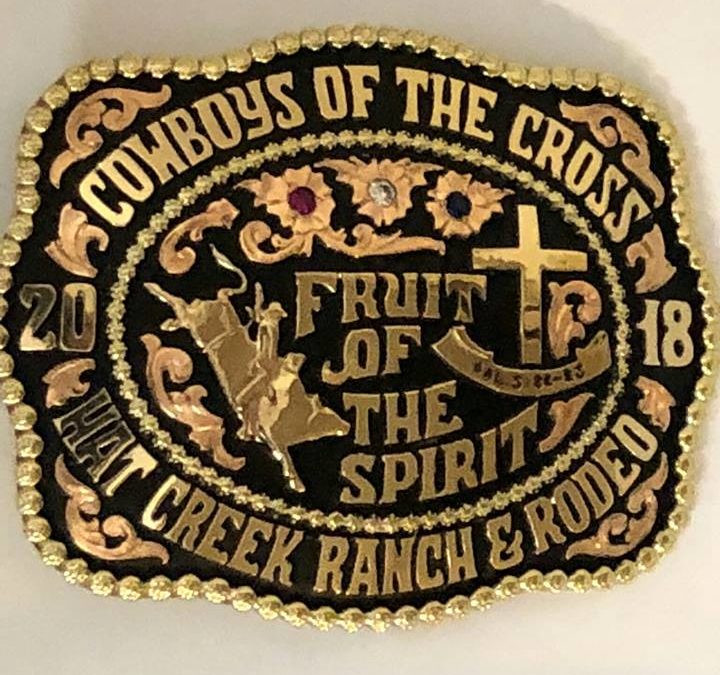
by admin | Sep 5, 2019 | Behind the Bucking Chutes
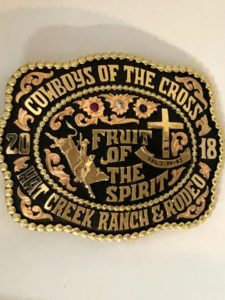
Chasing God and Gold Buckle Dreams Part 8
By Scott Hilgendorff / Cowboys of the Cross
Once you’ve chased down that dream and that gold buckle is on your belt or in a case with some others, you now have a perfect, modern day example of what Jesus was telling us in Matthew.
Matthew 6:19-21 “Do not store up for yourselves treasures on earth, where moths and vermin destroy, and where thieves break in and steal. 20 But store up for yourselves treasures in heaven, where moths and vermin do not destroy, and where thieves do not break in and steal. 21 For where your treasure is, there your heart will be also.
A buckle understandably becomes something we treasure. You worked hard to earn it. You had adventures along the way with stories to tell your grandchildren when they ask about that buckle on the shelf. All those are good things but we have to look at what we value more.
The Bible has much to say about idols. Many of the descriptions involve protecting the Israelites from following the false gods of the cultures all around them but an idol is anything we put before God. If we’re chasing that buckle, chasing that relationship or chasing that bigger truck, harder than we are chasing our relationship with Jesus, then we likely are dealing with idolatry.
John 5:21 Dear children, keep yourselves from idols.
In this verse, John has just finished explaining who we are in Christ and how important it is to know we’re separate from the rest of the world; that we are following something that is good and true, moving away from our sinful natures.
He then kindly warns us to stay away from idols that could take our focus away from God.
That doesn’t mean we don’t pursue our gold buckle dreams. What Jesus is telling us in Matthew is that everything we can earn here or gain here is temporary and can be taken away. Our time here is short and our eternity in Heaven, where we truly belong, is where our focus should be.
If our hearts are on God and not what we’re trying to accomplish, what we work toward can easily become something that honors Him instead of an idol or something that will only give us temporary comfort or pleasure in this life.
By focusing our attention on God and looking for ways to glorify Him in our pursuits, our hearts on Him and what is yet to come in heaven and in that way, we’re storing up treasures in heaven. When we’re seeking God, everything else falls in line behind that. Nothing can become an idol and everything we do becomes about God.
Sometimes that might mean what we pursue changes. If something is becoming an idol in our life, if we can’t find a way to turn it toward God, then it becomes something we might need to let go. However our dreams might change or our paths might be altered, when our focus is on God and our treasure in heaven, then we will be at peace, even joyful, with the changes in our lives.
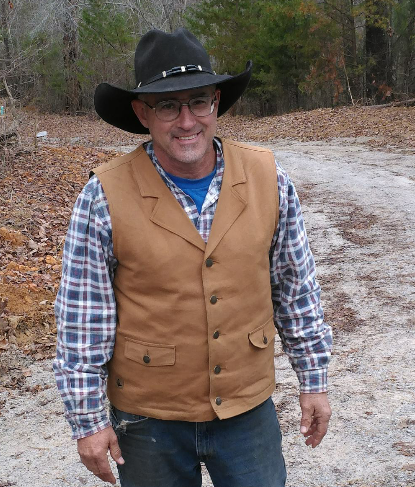
by admin | Jul 24, 2019 | Testimonies

Christian cowboy Daryl Skeeter Spaulding
I first heard the Gospel in the summer of 1978 between my junior and senior year of high school. My brother and I spent the summer with my brother -in-law and sister [Don and Ruth Ann) to frame houses with Don. They are believers in Jesus and we heard the Gospel from them and others that summer. Before we went home to finish school I had made a profession of faith in Christ as Savior for salvation.
Over the years since that summer there has been an ebb and flow in my walk with Jesus. Some of the most meaningful times in my walk have been on the mission field in Brazil and Israel years years ago which still bring fond memories. Some of the toughest and trying times have been some of the sweetest for growing and depending on Father, Jesus and the Holy Spirit.
I want my testimony to the faithfulness of Jesus to be the focus of any and all parts of my life.
Jesus is who He said He is. I want even more to this day to know Him in the power of His resurrection.
John 3:14-16 explains it all. Take time and read it today.
In Christ Name, Chaplain Skeeter Spaulding with Cowboys For Christ

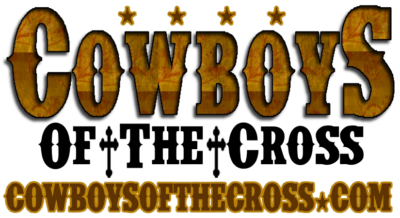






Recent Comments